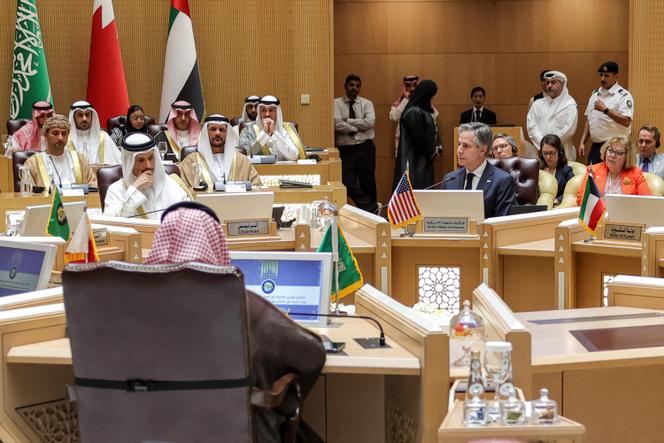
Like Saudi Arabia's call to "stop the genocide" perpetrated by the Israeli army against the Palestinians, Arab governments have been at pains to condemn the offensive launched by Israel at Rafah on Monday, May 6. Their red line is the large-scale operation launched in this city where 1.4 million Gazans have massed. A new humanitarian catastrophe would further undermine the credibility of these governments in the eyes of public opinion. It would also complicate the development of a plan for the "day after," a plan that has already been struggling to take shape. The Arab states and the US administration, whose hands are tied by Israel's refusal to consider anything other than a military occupation of the Gaza Strip, are far from being on the same page.
While the Arab states have insisted on recognition of a Palestinian state as the cornerstone of a diplomatic solution, Washington has made normalization between Saudi Arabia and Israel a priority. This dissonance undermines the Arab consensus. It sharpens differences of opinion and the "competition for leadership between Qatar, the United Arab Emirates and Arabia," noted an Egyptian diplomat.
After several months of consultation under the aegis of the Saudis, the Arab "contact group" – also including Egypt, the United Arab Emirates, Jordan and Qatar – finalized a joint proposal. Presented by top Arab officials to US Secretary of State Antony Blinken in Riyadh on April 29, the plan was rejected by Washington. This detailed roadmap to "the day after," which Le Monde was able to consult, makes UN Security Council recognition of a Palestinian state within the 1967 borders, with East Jerusalem as its capital, a prerequisite for peace negotiations between Israel and the Palestinians.
"This means reversing the logic of Oslo [Accords]. Only when the Palestinian state is recognized can we seriously consider working on how to achieve decolonization. Amman is presenting this as a fait accompli policy, to enshrine the two-state solution and prevent any backtracking," explained Laure Foucher, an expert at the Foundation for Strategic Research. The Arab states have had a preview of the American response when Washington vetoed the resolution for the admission of the State of Palestine to the UN, presented by Algeria to the Security Council on April 18.
Arab capitals divided
In Riyadh, they were nevertheless expecting some commitments from the Americans. "They hoped to present their plan and 'deal' with the US, then present it to the Europeans and go to the Security Council. The plan failed. Blinken said no on every single issue, even if you can't strictly speak of a veto. The Americans are not ready to make a move on political issues," commented a French diplomatic source. "[They] said that the time was not right for such an initiative, which is not likely to encourage the Israelis to make concessions," confirmed the Egyptian diplomat.
You have 59.25% of this article left to read. The rest is for subscribers only.